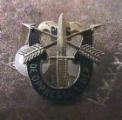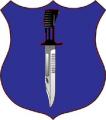I think Von Manstein was missing a trick. The Germans held very few troops in the forward defensive zone, at least by 1916 - about a 1/4 of what the Allies did. The whole point was to have reserves massed for counter attack. - a backwards offensive is just that, without the screen in the place.
I just do not see any competent general walking into what is obviously a well laid ambush - and I think history supports that contention.











 .
.







Bookmarks